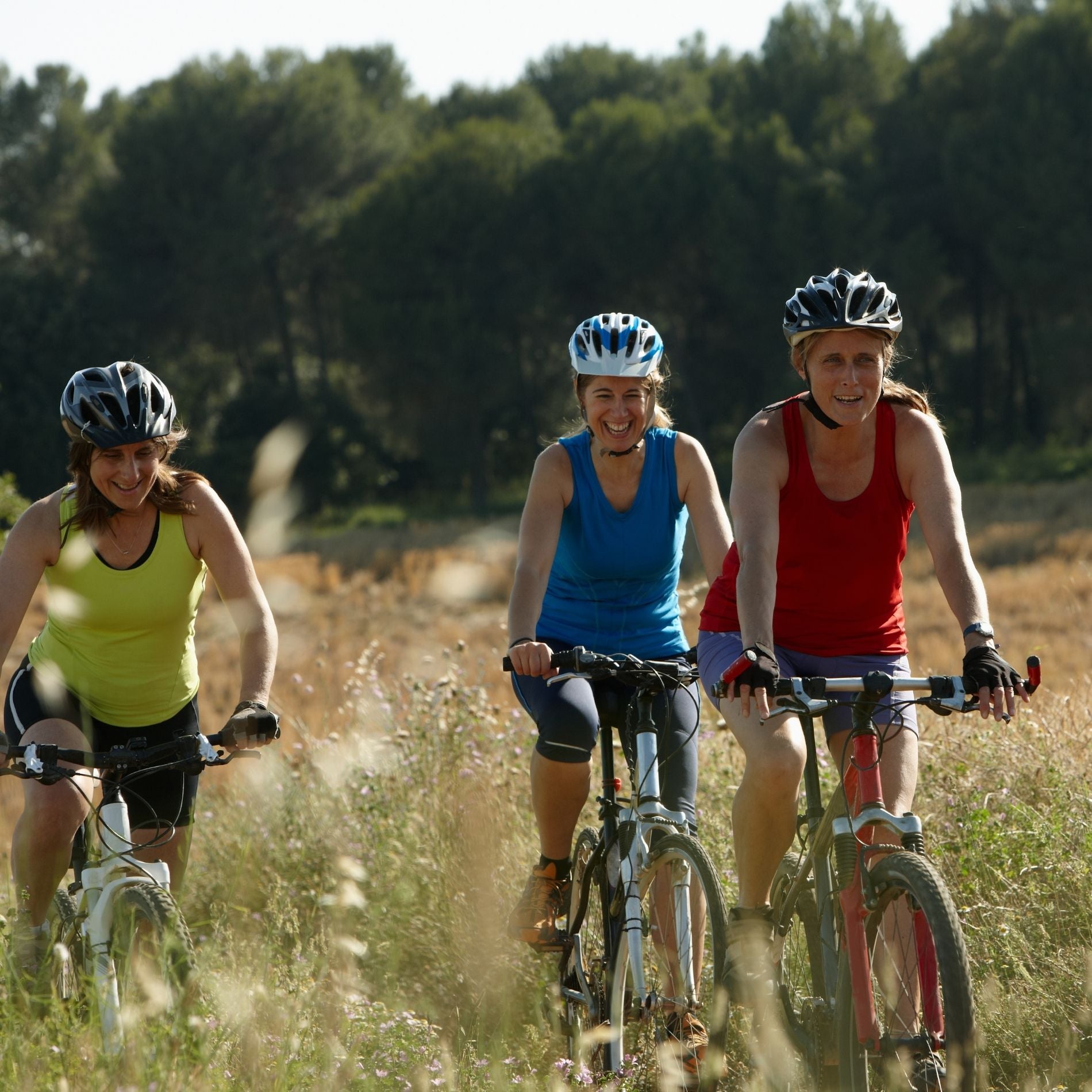Your Fitness Journey: What to Start, How to Choose
Jun 24 , 2021
Last month we looked at goal setting, so this month we’re going to look at how we can achieve those goals.
Whenever people start talking to me about fitness, the things I hear most are “I can’t run” and/or “I don’t like gyms” as if getting fit could only be achieved via those two things. You will be delighted to know that there are so many ways to improve your physical health and mental well-being you’re bound to be able to find something right up your street, as long as you give it some serious thought first.
The best place to start is with activities you enjoyed as a child or those activities you would have enjoyed as a child had you been allowed. I took up ballet, for the first time, in my early 30s and loved it. I had always wanted to do ballet but was sent to brownies instead because it was cheaper. Now a mother of three myself, I totally get that decision, but at the time, I was gutted.
Whatever activities you enjoyed as a child, there are likely to be adult classes or groups that are suitable for you so don’t fret that it will be you surrounded by a load of 5 year olds who are better at it! Even those activities which tend to look youth oriented are now also targeting the adult sector. Adult gymnastics anyone? https://www.british-gymnastics.org/discover/adult-gymnastics
Perhaps you weren’t at all sporty as a child so have no idea where to start. In that case it’s worth considering what you’re looking for in an activity. The following are a few ideas...
Group activities – these are activities that you do alongside other people. They are generally non-competitive and the other participants are not reliant on you or your abilities. Examples of these would be an exercise to music class which incorporates classes such as aerobics and indoor cycling, yoga classes and tai chi. Why do these? Because it’s sociable, sometimes involves uplifting music and allows you to progress at your own pace.
Team Activities
These are activities you do with other people as a team or that require at least one other person to be meaningful. They tend to be competitive in some way, although the level of competition varies massively, and as a team you are reliant on each other. However, this does not necessarily mean you need to have any particular ability, just choose the right team to join. Examples of these would be hockey, netball, football and tennis. Concerned that these are all high impact? Fret not! Let me introduce you to:
Walking hockey - https://www.englandhockey.co.uk/play/adult-club-hockey/walking-hockey
Walking netball - https://www.englandnetball.co.uk/play/walking-netball/
Walking football - https://thewfa.co.uk/ https://www.walkingfootball.com/
Walking tennis - https://www.lta.org.uk/play-compete/getting-started/adult-tennis/walking-tennis/
Why do these? Because it’s sociable and being part of a team is good for learning to trust and depend on others, accepting and giving help and working together to achieve a common goal.
Individual Activities
These are activities you can do on your own, the aforementioned running being a good example. Swimming, cycling, walking, skateboarding – there’s a wide variety of things you can take up without involving much in the way of social interaction.
Why do these? It’s not all about being sociable. It’s also important to have time alone with your thoughts to reboot your brain and unwind. Listening to your breathing and the sounds of nature as you walk or run through a forest can do wonders for your mental health as well as improving your physical health.
Competitive Activities
Some people just love to compete and there are lots of ways you can compete at all levels and all ages. One advantage of competitive activities is that the training for them is often a group activity, offering the social benefits that that entails. For example, in a triathlon club, members of all ages and abilities will train together for swim, bike and run, but then compete individually in triathlon races. There are entry level races (https://www.gotri.org/whats-on?event_name=&categories%5Bevents%5D=events&categories%5Bgym%5D=gym&datepicker_from=&datepicker_to=&alldates=1&postcode=&within=&tailored=&competitor=) and opportunities to race for GB at all ages (https://www.britishtriathlon.org/gb-teams/age-group/about-age-group-triathlon) as well as every level and distance in between. And never think you’re too old – I have people on the GB long distance triathlon teams I manage who are in their 70s, and long distance triathlon covers 3.8k swim, 180k bike and 42.2k run!
New Skills
Some activities may require you to learn a new skill and that might be part of your journey to physical fitness. I’m thinking of learning to ride a bike or learning to swim. It’s never too late to learn and both of these activities offer huge health benefits and have the advantage of being low impact too.
I hope in this article I have helped you see beyond running and going the gym if they are not for you. Let us know what you choose and what else you find you to take you on your journey to physical health and mental well-being.
In case you’re interested, I run beginners group running sessions, women only cycling and running sessions and, aimed specifically at the BAME community, learn to ride/improver sessions.
Dawn is a British Triathlon level 3 coach and also qualified to coach cycling, teach swimming and is a YMCA level 3 Personal Trainer. Her aim is to help individuals and groups, whether novice, GB age group or somewhere between, to achieve their goals whilst remembering that for many athletes their training needs to be balanced alongside a full time job and family responsibilities.


